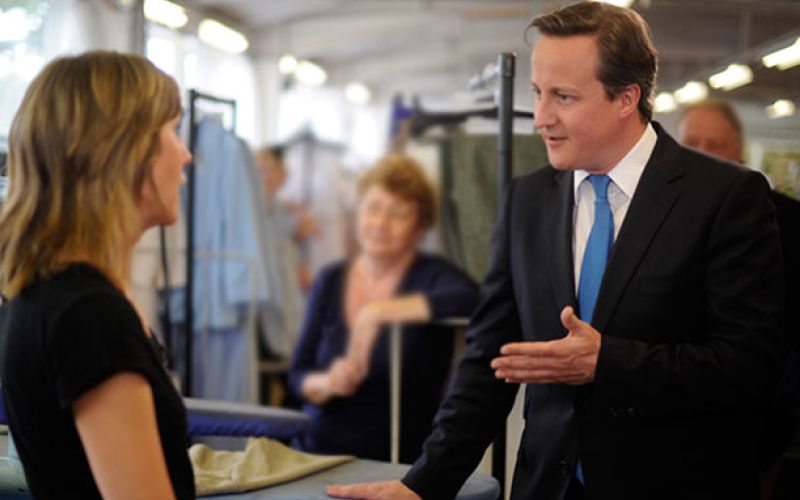The Conservative party has made it clear in its election manifesto that it plans to make further sweeping cuts to social security spending and scrap the Human Rights Act.
The manifesto says that the party’s approach on the economy is “focused on reducing wasteful spending, making savings in welfare and continuing to crack down on tax evasion and aggressive avoidance”.
The party would cut social security spending by a further £12 billion a year, but has yet to say how it will find most of these “savings”.
The manifesto confirmed previously announced plans to lower the amount of social security payments that a household can receive to a maximum of £23,000 a year – although excluding disabled people claiming disability living allowance or personal independence payment – and to cap overall welfare spending every year in the next parliament.
And it confirmed plans to freeze working-age benefits until April 2018.
Although it repeats the claim that this freeze does not include disability benefits, the party has already admitted that this protection will not extend to the main component of employment and support allowance (ESA) or the work-related activity group top-up component of ESA, but only to the ESA support group top-up.
The manifesto warns benefit claimants that the “days of something for nothing are over”.
It also includes previously-announced Conservative proposals to review whether out-of-work disability benefits for people with obesity and addictions – and maybe other conditions – should be cut if they refuse treatment.
The party has so far refused to say if a review would also look at mental health conditions, or other treatable impairments, but the manifesto says: “People who might benefit from treatment should get the medical help they need so they can return to work.
“If they refuse a recommended treatment, we will review whether their benefits should be reduced.”
The manifesto pledges that a Conservative government would scrap the Human Rights Act, introduced by the last Labour government, and replace it with a British bill of rights, which it says would “restore common sense to the application of human rights in the UK”.
Although the party promises that such a bill of rights would “protect basic rights”, such as the right to a fair trial, and the right to life, which are “an essential part of a modern democratic society”, it does not say which existing rights might be at risk.
The manifesto also includes a pledge to make the economy “more inclusive, by removing barriers that stop women and disabled people from participating in our workforce”.
The manifesto says a Conservative government would aim to halve the gap between the proportion of disabled people and non-disabled people in jobs, and would “transform policy, practice and public attitudes, so that hundreds of thousands more disabled people who can and want to be in work find employment”, although it does not describe how this would be done.
The manifesto also includes a pledge to ensure “proper provision of health and community-based places of safety for people suffering mental health crises”, which should prevent them being detained in police custody.
There are also plans to give more “vulnerable victims and witnesses” the opportunity to give their evidence outside court, and a review of hate crime laws, “including the case for extending the scope of the law to cover crimes committed against people on the basis of disability, sexual orientation or transgender identity”.
Along with the Greens, Labour, the Liberal Democrats and UKIP, the Conservatives pledge to continue to integrate the health and social care systems, “joining-up services between homes, clinics and hospitals”.
The manifesto concludes: “Those who work hard and do the right thing must be rewarded. Everyone should be able to rise as high as their talents and effort will take them.
“We measure our success not just in how we show our strength abroad, but in how we care for the weakest and most vulnerable at home.”
Disability News Service contacted two disabled Conservative parliamentary candidates – Paul Maynard and Robert Halfon – to ask them for their views on the manifesto, but neither was available to comment.

 Shock of activists as disability minister ignores disabled woman who collapsed on floor after cuts meeting
Shock of activists as disability minister ignores disabled woman who collapsed on floor after cuts meeting Universal credit barriers mean disabled women face ‘terrifying’ risk of destitution, MPs are warned
Universal credit barriers mean disabled women face ‘terrifying’ risk of destitution, MPs are warned  Disability minister is ‘drawing up a list’ of potential actions to address barriers
Disability minister is ‘drawing up a list’ of potential actions to address barriers